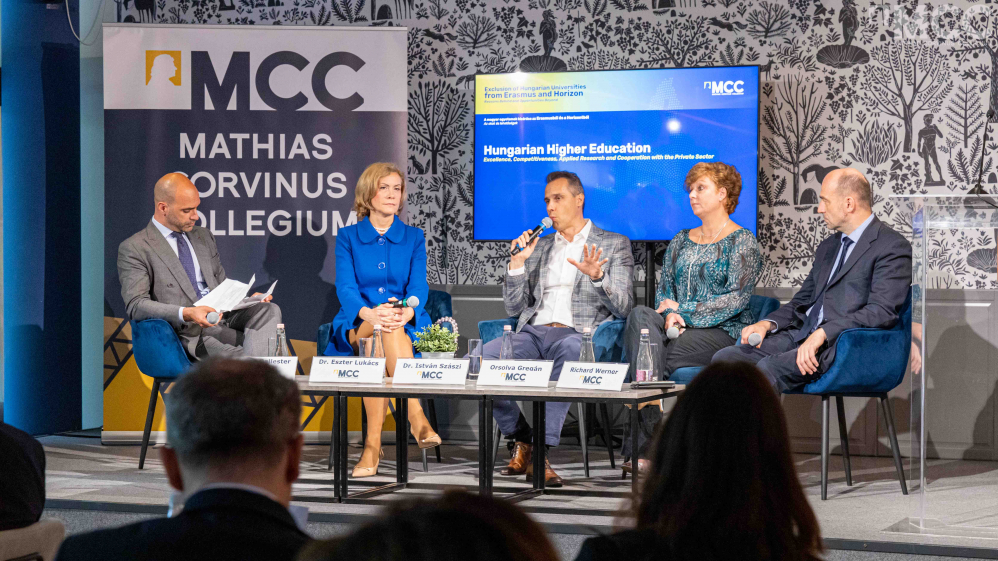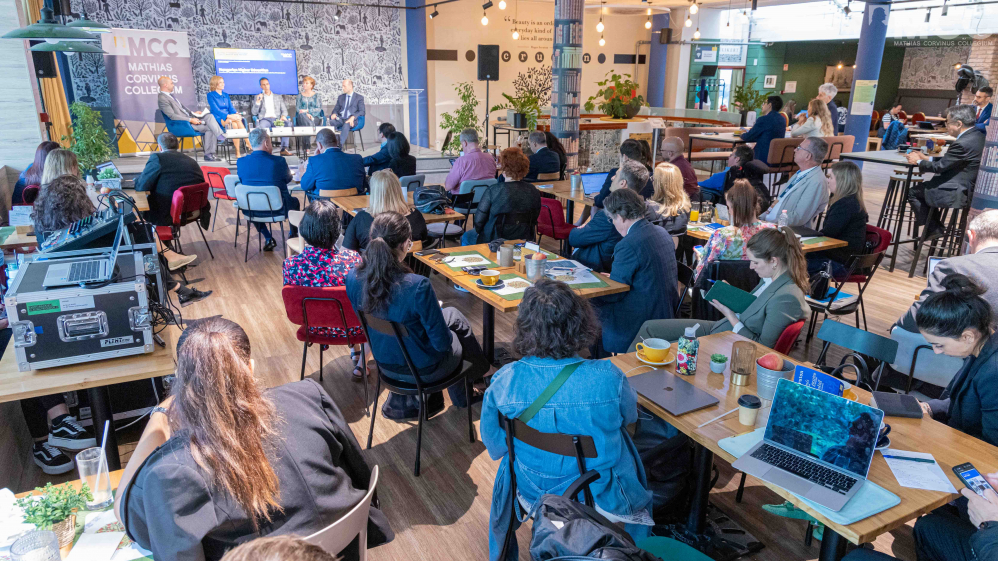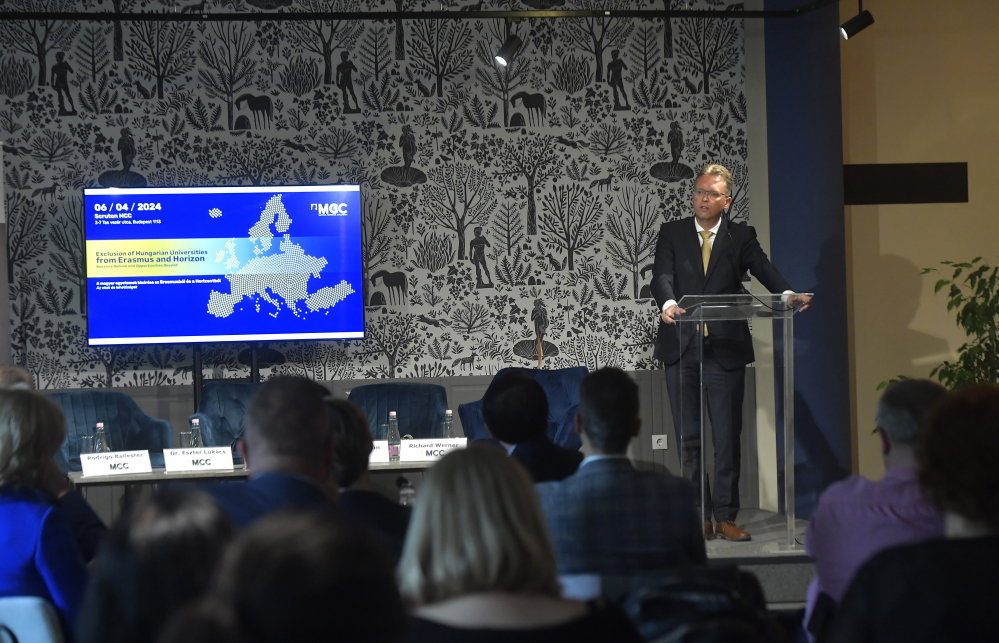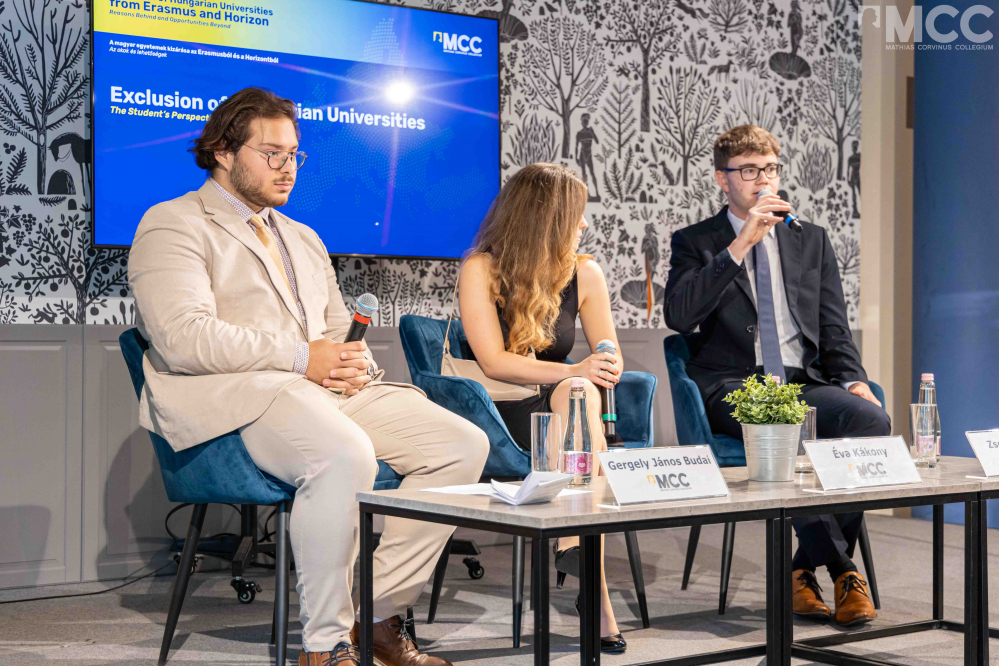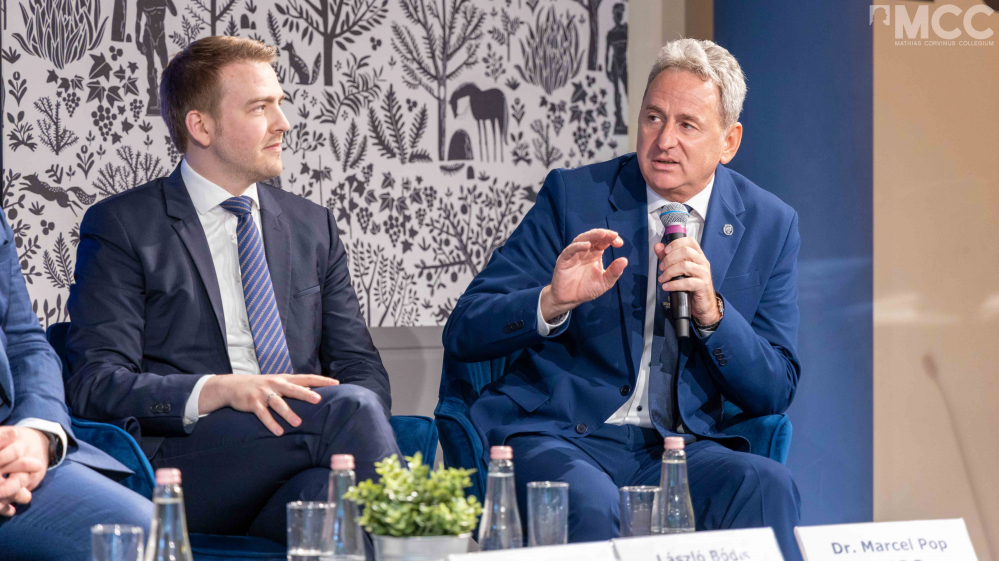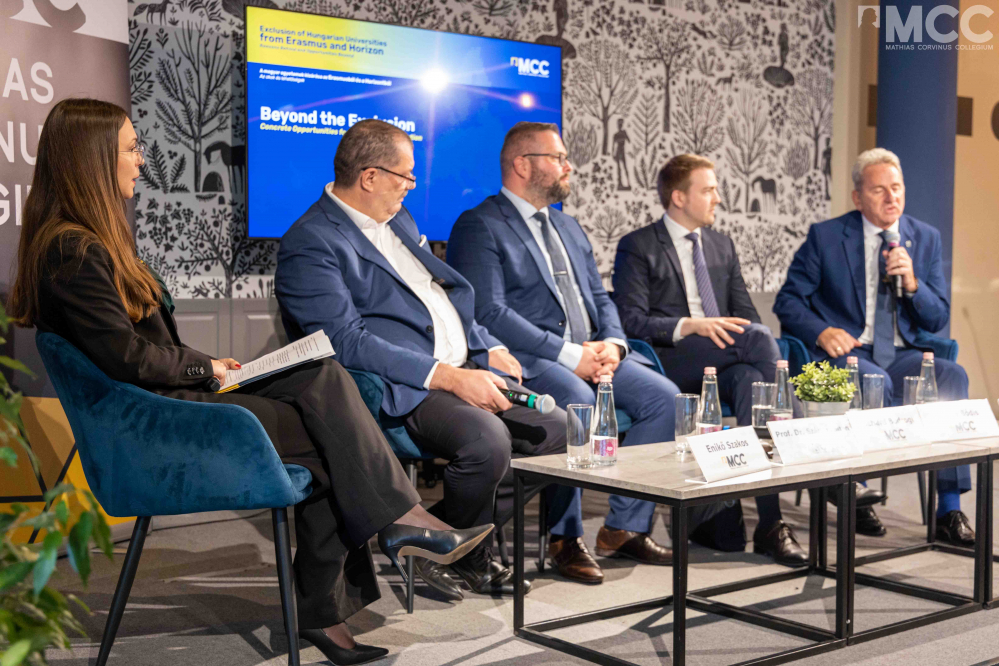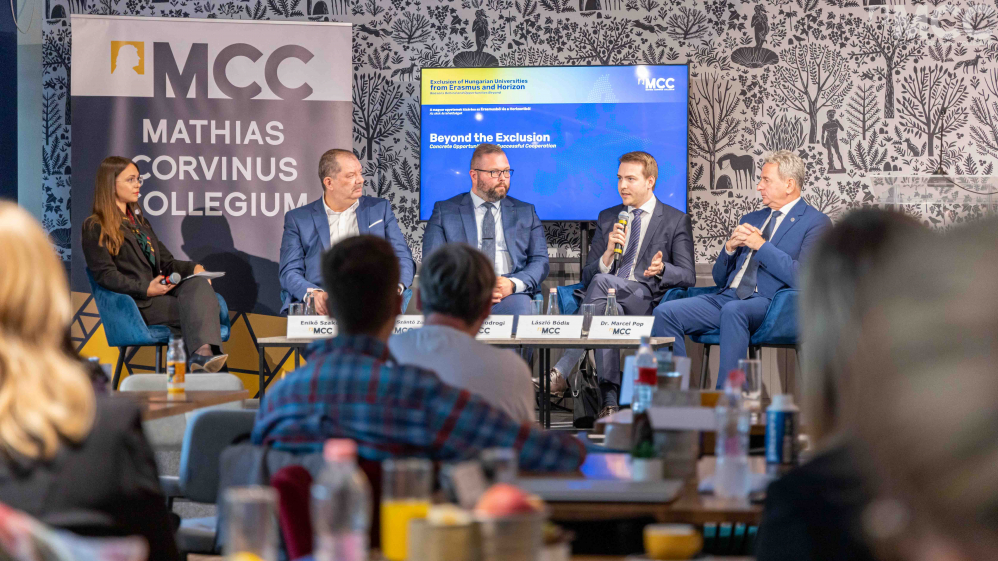Olvasási idő: 1 perc
The latest conference hosted by the Centre for European Studies, MCC, shined a spotlight on the predicament facing model-changing universities, which find themselves excluded from direct EU funding.
The latest conference hosted by the Centre for European Studies, MCC, shined a spotlight on the predicament facing model-changing universities, which find themselves excluded from direct EU funding. The event drew a diverse audience including representatives from academia, industry, public administration, and students themselves. Guest speakers also lent their expertise, participating in panel discussions that enriched the dialogue.
In his inaugural address, Dr. Balázs Hankó, State Secretary for Innovation and Higher Education at the Ministry of Culture and Innovation (KIM), underscored the core tenets of the Hungarian higher education model: flexibility and autonomy for researchers, teachers, and organizations. Dr. Hankó highlighted a pertinent issue, noting that since the European University Association and the European Autonomy Assessment System only evaluate state universities, their assessments lack applicability to other institutional models.
Delving deeper, the conference explored prospective avenues for universities, contemplating initiatives such as the HUrizont or the Pannonia scholarship program. These endeavors aim to facilitate opportunities for students, researchers, and professors to pursue endeavors abroad.
Additionally, the event received distinguished guests from embassies spanning four continents—Africa, America, Asia, and Europe—underscoring the global significance of the discussions held.
